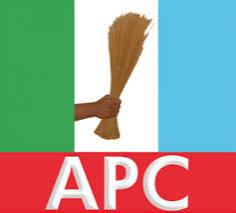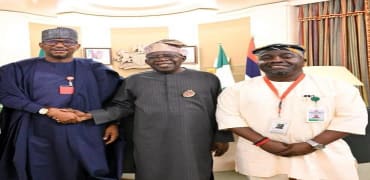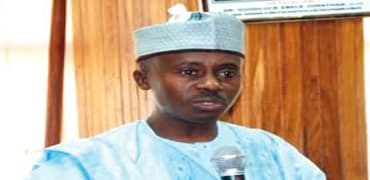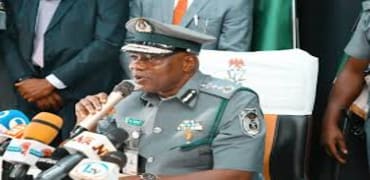After Buhari: APC Faces a New Era of Uncertainty Ahead of 2027
After Buhari: APC Faces a New Era of Uncertainty Ahead of 2027
As the sun set over Daura on Tuesday, it wasn’t just the body of former President Muhammadu Buhari that was laid to rest—it was also the final chapter of a political era that had defined Nigeria’s democracy for over two decades.
The late President Buhari, who ruled both as a military leader and twice as a civilian president, was buried in his hometown in Katsina State. The solemn ceremony drew political dignitaries from across Nigeria and beyond. But beneath the tears and eulogies, a deeper reality is setting in: the All Progressives Congress (APC) must now forge ahead without the shadow of its most iconic figure.
2027 Without Buhari: Can APC Hold Its Own?
While tributes poured in, analysts and party faithful alike turned their gaze to the future: the 2027 general elections. Without Buhari's magnetic grip on millions of voters—particularly in the North—questions abound about APC’s ability to retain power, especially with President Tinubu now fully at the helm.
Wahab Owokoniran, an APC chieftain and Pro-Chancellor of the Federal University of Transportation, Daura, tried to calm nerves. Speaking on Channels Television during the live coverage of Buhari’s funeral, he described Tinubu as a “master strategist” who has spent nearly four decades building political alliances nationwide.
“There’s no doubt this is a big loss,” he said. “But Tinubu has built bridges for 39 years. Some we may lose, others we will gain. I don’t see the APC losing the next election.”
Still, Owokoniran admitted that Buhari’s shoes are "too big for anyone to fill," though he drew parallels with the North’s history of rallying around charismatic political figures—suggesting a new leader may emerge from the region, though who that might be remains uncertain.
A Storm Brews: ADC Coalition Poses New Threat
Complicating APC’s prospects is the emergence of a formidable opposition coalition under the African Democratic Congress (ADC)—a platform now swelling with defectors like Atiku Abubakar, Nasir El-Rufai, Rotimi Amaechi, and Peter Obi.
Salihu Lukman, a former APC member turned ADC strategist, noted that Buhari’s influence had allowed many northern politicians to ride on his popularity without engaging the people directly.
“Now that he's gone,” Lukman said on Politics Today, “northern politicians must relate with the electorate with a higher level of humility. There’s no longer a ‘Buhari effect’ to rely on.”
According to Lukman, Buhari’s charisma enabled the APC merger in 2013–2014, bringing together disparate groups like Tinubu’s ACN and Buhari’s CPC. But with many of those founding elements now splintered, the original glue that held APC together is dissolving.
Analysts Warn: “The Storm Was Already Brewing”
Nduka Odo, a public affairs analyst at Peaceland University, believes the seeds of APC’s trouble were sown long before Buhari’s passing. He recalled how former Vice President Osinbajo’s presidential ambition strained Buhari’s ties with Tinubu, despite their public alliance.
“From that moment, something snapped,” Odo noted. “The trust was broken. Buhari’s CPC bloc and the New PDP have now all but deserted APC for ADC. Tinubu is left with his ACN loyalists.”
Odo warns that northern political culture, which leans heavily on strong figureheads, may no longer align with Tinubu’s decentralized approach. “If APC cannot maintain Buhari’s image as a guiding figure, even posthumously, they risk losing the ‘Buharist’ vote base.”
More critically, he points out that Buhari’s legacy among his followers has been tarnished by economic hardship. “The same Buharists who idolized him in 2015 are now among those who celebrated his death. Hunger has erased loyalty.”
Internal Crisis: A Shettima-Tinubu Split?
Speculation about infighting within the presidency further clouds APC’s future. Rumors suggest President Tinubu may drop Vice President Shettima as his running mate in 2027—an unpopular move in the North.
Already, tensions erupted at the APC North-East convention, with regional party leaders warning that dropping Shettima would cost Tinubu northern support. Shettima, notably, hails from Buhari’s CPC legacy, making the decision politically risky.
“This isn’t just about personalities,” Odo emphasized. “It’s about legacy and symbolism. If Tinubu breaks the last tie to CPC by discarding Shettima, it could fracture the party’s core.”
Beyond the Myth of 12 Million Votes
Despite the folklore around Buhari’s consistent 12 million votes in past elections, Odo argues this was less about his personal appeal and more about strategic alliances—particularly with Tinubu’s South-Western base. He also condemned APC’s tone-deaf timing, referencing presidential aide Bayo Onanuga’s video crediting Tinubu for Buhari’s rise, posted on the very day of Buhari’s burial.
“That level of political tone-deafness shows the disconnect,” he said. “If APC cannot even manage a funeral with dignity, how will it manage a divided party going into 2027?”
The Road Ahead: Rebuild or Relapse?
With Buhari gone, and many of his former allies now turned adversaries, the APC stands at a crossroads. Will Tinubu consolidate and transform the party into his personal machine, or will the party fracture further under the weight of internal contradictions?
For the first time in a decade, the APC must run a national campaign without its northern anchor. Whether it floats or sinks in 2027 may depend not just on Tinubu’s strategy—but on whether Nigerians are willing to forget the legacy of hunger, division, and distrust that haunts both the Buhari and Tinubu administrations.
By Haruna Yakubu Haruna



















